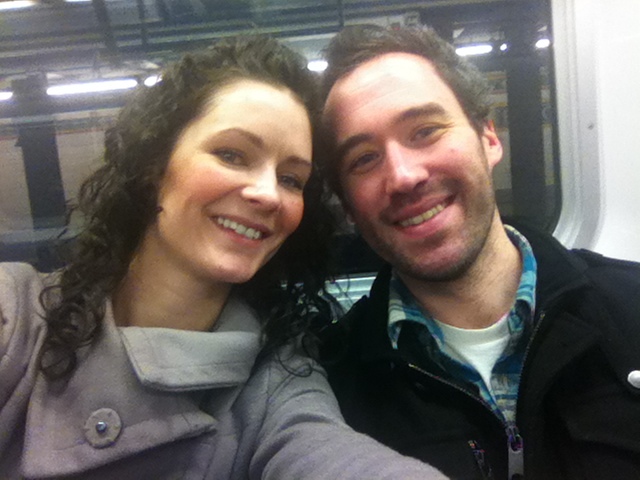“Did my birthmom give me up because my head is shaped like an oval?”
My son Harper was only six years old when he asked me that. I was shocked for so many reasons. First of all, because his head is perfect. Second, and more importantly, he was using language we hadn’t ever used. We never once said that she “gave him up.” We always said that she “placed him in our family” or that she was “not able to parent him.” Our careful word choice was not enough to change how he felt and how he felt was rejected, declined, discarded…
given up.
Four years ago on this day, we finalized Jay’s adoption. It took 19 long months of tedious paperwork, home visits from our case worker and jumping through legal hoops before this day became a reality. When I look back at the photos from that day in court, there is so much beauty and joy captured there.
I remember the peace the kids felt when they knew that Jay’s place in our family was sealed and solidified. That his sonship was sure. There was a palpable sense of reassurance knowing that this little boy was ours forever. As our friends and family gathered with us in that courtroom, our hearts took a collective sigh of relief. We have an open adoption, and a great relationship with Jay’s first mama, so it was not as if there was some crazy custody battle. Quite to the contrary, The Lovely Miss N. - as we affectionately call her in the blog - was walking through this part of our journey with us. She too rejoiced when the adoption was finalized, because she also wanted Jay’s place in our home and family to be permanent and sure.
The fact that nobody was contesting either of our boys’ adoptions technically made things “easier” for us. Yet, as I continue to listen to and learn from the powerful voices of adult adoptees in my life and community, I can’t help but anticipate the dismay that my sons will likely experience as a result of knowing that nobody contested their adoptions. Nobody tried to stop it. Nobody fought us for them. The set of circumstances that created relatively obstacle-free finalizations are the same dismal circumstances that will cause our boys to process feelings of rejection and abandonment for the rest of their lives. Whether they were “lovingly placed” or “given up” almost doesn’t matter if their little souls question their worth and their place in the world.
I happen to know for sure, with 100% certainty that my sons were (are) both fiercely loved by their first moms. Because we have the luxury of an open-adoption with Jay’s birthparents, we have it on pretty good authority to say that they are absolutely wild about him. Due to situations that are not mine to disclose, my boys’ first moms made an impossible decision. Their choices were made out of anything but rejection or indifference. Still, we cannot possibly know how a child will interpret the actions or inactions of the adults in their lives.
And while we are entirely committed to facilitating healthy relationships between our boys and their birthfamilies, we know that there will be times of strain and hurt no matter how hard we try to prevent it. We know that there will come a time when they will confront the harsh awareness that they were “free to be adopted.” And knowing that their heartbreak is inevitable, I find these photos and memories equal parts joyful and disconcerting. The more I learn about the adoptee’s experience, the harder it is to celebrate these moments without also acknowledging the layered grief and loss involved in a day like this coming to fruition.
#AdoptionIsLove is a popular hashtag in the adoption community. And it is so true. From every side there is this imperfect, but unending love for a child. Adoption IS love. But a less popular truth is that adoption is also loss. It isn’t as trendy a hashtag and it isn’t as pleasant a view of adoption - but it is just as real, just as true.
Adoption is love. Adoption is loss. Adoption is wondering if there is something inherently wrong with you. It’s looking in the mirror, wondering who you look like, and thinking maybe your head is just too oval to be loved. Adoption is feeling given up, even when you were lovingly placed. As I tucked my boys in to bed tonight, I asked Harper if I could share this story from when he was a little boy with all of you. I said that I think it’s important to tell the truth about the good things and the sad things about adoption so that people can understand all of it a little better.
He gave me his permission. And then he added this,
“You can tell them that I said that when I was a little boy, but it’s okay to tell the things I worry about now. Like... I don’t think it’s because of my head anymore, but I still think it’s because of something. I just don’t know what it is yet. Maybe knowing that I still wonder will help people to understand the sad parts.”
I am thankful, beyond thankful, that I have the joy and responsibility of raising these two little crazies. I am thankful for the days that the states of New York and New Jersey said that they could be ours forever. I am thankful that I know - even when they don’t - that their first mothers would die for them in an instant. I am thankful and overjoyed, to be sure, I just don’t know if all the other feelings we have about adoption will ever quite fit into a hashtag.





